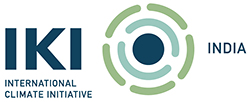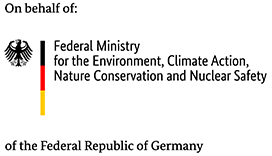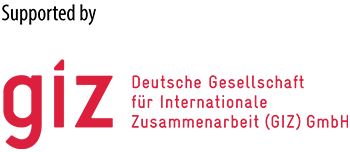Youth Rights in the Age of Climate Crisis
An Indian and Global South Perspective
October - December 2024Dulari Parmar and Roshni Nuggehalli
Youth for Unity and Voluntary Action (YUVA)
India’s young population is often framed in dualistic terms: as an economic force capable of driving growth or as a demographic that must be guided (Nuggehalli R., 2021). However, this perspective does not fully address the broader needs and rights of youth—access to education, healthcare, employment, and mental well-being. These fundamental aspects of youth development are increasingly affected by climate change, which disrupts learning environments, intensifies health risks, and limits job opportunities. The impacts are even more severe for urban poor and marginalized communities, who face additional vulnerabilities due to inadequate infrastructure and limited access to resources. If India’s urban youth are to thrive in an uncertain future, they must be recognized as key stakeholders and included in climate action and planning.
The Climate Crisis and Its Impact on Youth
Climate change is not just an environmental issue; it is a generational crisis that intensifies existing inequalities, disproportionately impacting youth in informal settlements and disadvantaged communities. Extreme weather events like heat waves, flooding, and air pollution pose risk to their health, disrupt education, and create economic uncertainty. With over 1 billion people now living in slums or informal settlements globally—80% concentrated in Eastern and South-Eastern Asia, sub-Saharan Africa, and Central and Southern Asia—climate risks tend to impact low-income urban communities hardest. In Maharashtra, 11.8 million people live in slums, including 42% of Greater Mumbai’s population, where YUVA’s Climate Hazard Mapping shows increased exposure to climate hazards due to inadequate infrastructure and limited access to essential services (Goswami A. & Parmar D., 2024).
For young people in these settlements, these challenges are twofold: climate impacts exacerbate existing economic instability, and limited education and employment opportunities reduces resilience. Nearly 44.7% of young workers are in informal employment, lacking stability and social protections. Health risks are another major concern. Rising temperatures lead to increased heat-related illnesses, while poor air quality exacerbates respiratory conditions among youth. The lack of access to mental health support further compounds these challenges (Parmar D., et. al. 2022). Nearly 60% of surveyed youth experience climate anxiety, with 45% reporting productivity loss, and levels higher in the Global South than the Global North.
Youth as Stakeholders in Climate Action
Youth for Unity and Voluntary Action (YUVA), a grassroots NGO based in India, recommends the following key approaches to strengthen youth-led climate action and embed their perspectives in decision-making:
● Institutionalizing grassroots climate action through frameworks like Community Climate Action Planning, enabling youth-led assessments and adaptation implementations that address the community’s multilayered vulnerabilities, thereby strengthening their rights, physical and mental well-being.
● Embedding youth voices in participatory city planning processes, that advocate for climate and socially just spatial planning
● Expanding access to climate-resilient livelihoods by strengthening vocational training, green job opportunities, and social protections for young workers especially in informal sectors.
● Facilitating inclusive access to climate knowledge for youth from marginalized communities and strengthening their collective engagement in climate action.
● Advocating for dedicated funding mechanisms that prioritize youth-led climate initiatives, ensuring financial and institutional support for sustained engagement and long-term impact.
Reframing Climate Justice and Youth in Climate Action
The participation of young people in climate discussions remains limited, particularly in global climate dialogues. Many climatediscussions focus primarily on emissions reduction and individual action, sometimes overlooking the lived realities of local communities. Barriers such as language and regional differences can make it difficult for grassroots perspectives to be incorporated into national and global policy discussions. This is evident in cities across the Global South, where local and rural climate concerns rarely find a place in policy discussions at the state or national level (Suri S., 2023).
To ensure that youth from all backgrounds have a role in climate action, their contributions must be acknowledged beyond economic productivity and symbolic representation (Nuggehalli R.,2018). The success of youth led initiatives in India and across the Global South demonstrates that when provided with resources, opportunities, and policy recognition, they can drive meaningful change. A key consideration for youth involvement in climate governance is how their voices can be integrated into decision-making structures to create effective spaces for their contributions, ensuring lasting impact.
References
Goswami A. & Parmar D. (2024). Youth-driven climate resilience and disaster preparedness: Grassroots lessons from Maharashtra. October, 2024, Volume 25. No.1 www.hudco.org ISSN 2347-4912
Nuggehalli, Roshni K. (2018). Let principles drive practice: reclaiming youth work in India. In P. Alldred, F. Cullen, K. Edwards, D. Fusco (Eds.) Let Principles Drive Practice: Reclaiming Youth Work in India (pp. 73-83). SAGE Publications Ltd, https://doi.org/10.4135/9781526416438
Nuggehalli, Roshni K. (2021). 'Youth Protagonism in Urban India', in Sharlene Swartz, and others (eds), The Oxford Handbook of Global South Youth Studies (2021; online edn, Oxford Academic, 8 Oct. 2020), https://doi.org/10.1093/oxfordhb/9780190930028.013.40, accessed 19 Jan. 2025.
Nuggehalli, Roshni K. & Parmar D. (2025, February 8). Research: How local communities can assert voice in mapping. Question of Cities. https://questionofcities.org/research-how-localcommunities-can-assert-voice-in-mapping/
Parmar Dulari, Pinto Manasi and Nuggehalli Roshni. (2022). “Environmental Health and Care Require Environmental Justice.” ReFrame, no. 5, Dec. 2022, pp. 78–81, reframe2022.mhi.org.in/. Mariwala Health Initiative.
Suri, S. (2023, December 4). It’s time for climate justice- A Global South perspective on the fight against the climate crisis. orfonline.org. https://www.orfonline.org/research/a-global-southperspective-on-the-fight-against-the-climate-crisis
Copyright © 2026 All rights reserved





